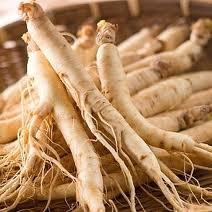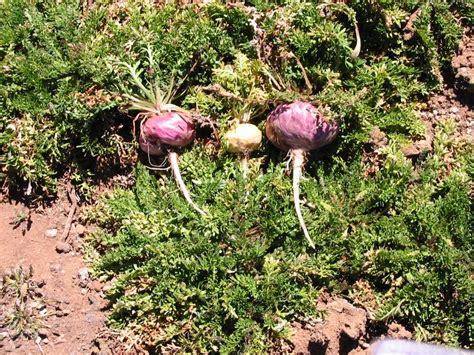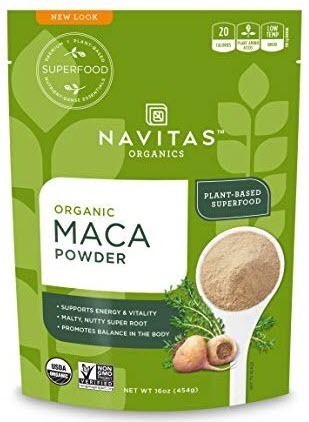- You are here:
- Home »
- Blog »
- Natural Solutions »
- Seven Adaptogenic Herbs to Help Safely Reduce Stress and Generate Better Health – Part 2
Seven Adaptogenic Herbs to Help Safely Reduce Stress and Generate Better Health – Part 2

Using Adaptogenic Herbs
Before introducing the first three adaptogens you can use to safely generate better health, we’ll cover a few cautions and suggestions on their usage. The fact is, while not everyone can use adaptogenic herbs for treatment of their health issues, most people can take these types of herbs without any ill effect if they use them correctly.
Group Cautions
One group of people that should be careful are pregnant or breastfeeding women. The usage of adaptogens has not been adequately studied in this group. We also don’t know how the herbs might impact the nursing baby through changes to the mother’s overall system.
Another group that should take some caution before taking adaptogens are those on prescription medicines. If you fall into this group, you should talk to your physician as negative interactions can potentially occur.
More Than Stress Applications
As mentioned in part one, adaptogenic herbs are botanicals which naturally provide a number of desired health benefits. They are especially helpful in targeting mental and physical stress.
However, they also provide energy, strength, mental focus and clarity without the dangerous side effects of synthetic supplements or medications.
Three adaptogenic herbs are covered in this post in a bit more detail. The remaining four will be addressed in the last post of this 3 part series.
Using Eleuthero
What is Eleuthero?
Eleuthero, also known as Siberian Ginseng, has been used in China as a traditional herbal remedy for over 2,000 years.
It is native to northern China, North and South Korea, southeastern Russia, and Japan. Traditionally, eleuthero has been used as a stimulant and to boost the immune system.
First, popularly known as Siberian Ginseng, this name was banned by the Ginseng Labeling Act of 2002 in an attempt to reduce the confusion between panax ginseng and the eleuthero root.
Health Benefits of Eleuthero
Eleuthero provides a wide variety of health benefits which includes:
Improving Mental Functioning
Eleuthero works to increase blood flow to the brain. This helps to improve mental functions such as concentration, focus, reasoning, and memory.
Eliminating Fatigue and Boosting Energy
Eleuthero has long been used as a natural stimulant. It increases energy levels. Its naturally occurring compounds work to relieve exhaustion.
Heals Wounds
Since eleuthero boosts the immune system, the body’s natural healing processes work more quickly. The herb also contains compounds that have been proven in studies to be very effective in the prevention of ulcers.
Menopause Relief
Eleuthero extracts have been shown to bind to the receptor sites of estrogen. This means that it can help to decrease the undesirable effects of estrogen withdrawal in menopausal women.
Repair and Prevent Nerve Damage
Research has proven that eleuthero works to encourage the regeneration of nerves following damage. It may also contribute to synapse regrowth as shown in lab rats with nerve damage.

Decreases Effects of Osteoporosis
Eleuthero has been shown for many years to be effective at boosting bone and muscle strength. A 2013 study showed a nearly 17% increase in the bone density of lab rat femur bones when the rats have been given 100 mg of the herb daily for a period of 8 weeks.
It has also been used with good effect to treat kidney disease, viral infections and even HIV.
Cautions:
There are some reports that eleuthero interacts negatively with digoxin, lithium, haloperidol and cyclobensaprine. Consult your doctor before taking this herb if you using those medications.
Reported side effects are insomnia (understandable because of its stimulant effect) and diarrhea.
How is Eleuthero Used?
Eleuthero in powder form can be mixed with water or juice and ingested. A daily dosage of 1-2g is recommended, divided evenly into 2-3 doses and taken between meals. It is also available in convenient capsule form and tinctures.
Using Maca
What is Maca?
Maca or Maca Root is also called Peruvian Ginseng. It is native to the Peruvian Andes mountains in South America. It has long been used for its traditional medicinal benefits.
One of the most recent benefits of Maca was discovered in a 2016 study when it was found that the root improves the quality of semen in infertile but otherwise healthy adult males. It is also known to increase libido because of its ability to increase strength, energy and endurance. Hence, it is an herb of choice for many athletes.
Health Benefits of Maca
Maca root has been shown in multiple studies to deliver several health benefits such as:
Menopausal Stress Relief
Maca is known as a hormone regulator in that it helps to balance the hormonal system. Women suffering from the stressful effects of menopause have reported that adding small amounts of Maca Root powder to their diet helps relieve anxiety, fatigue, and the overall unpleasantness of menopause.
Improves Mental Functioning
Maca calms the nerves because of it’s fatty acid, phosphorus, calcium and B1 and B12 vitamin content. These are all very beneficial to the nervous system. Consequently, Maca has been proven to improve mental focus, memory, and has shown promise in delaying the onset of debilitating mental conditions and diseases.
Improves Overall Health
Maca is rich in iron which helps oxygenate the blood, lowering the risk of anemia. The natural vitamin content works to ward off illnesses, viruses, the flu, colds, etc. There are claims that Maca decreases the risk of prostate disease in males.
Relieves Depression
Maca naturally increases energy levels and encourages hormonal changes in order to improve mental outlook and mood. It also calms the nerves because of its fatty acid, phosphorus, calcium and B1 and B12 vitamin content. Individuals who have suffered from depression and who have taken Maca on a regular basis show improvement and outlook.
Increases Bone Density
Maca has been proven to increase bone density and strength. Many people believe that daily use of the root helps to prevent osteoporosis.
How is Maca Used?
Maca is most commonly used in powder form. The powder can be capsulized but is palatable enough to be added to food or stirred into tea, soup or that morning smoothie. It can even be fermented and brewed into a weak form of beer.
Cautions:
Since maca is high in iodine, it should not be taken by people with thyroid disease. Like siberian ginseng, maca can also raise the heart rate because of its stimulant properties if over used. However, it has been used for the villagers of the Peruvian highlands for hundreds of years for it’s nutritional and herbal benefits.
Using Rhodiola Rosea
What is Rhodiola Rosea?
Rhodiola Rosea is found in the frigid mountains of Asia and Europe. It is also known by the names Golden Root and Arctic Root. It is an especially potent herb, containing over 140 active ingredients. Rhodiola Rosea has long been used in Scandinavia and Russia to treat conditions such as depression, anxiety, and associated fatigue.
Health Benefits of Rhodiola Rosea
With its vast number of active ingredients, Rhodiola Rosea offers a wide range of health benefits, including:
Decreases Anxiety and Stress
Test studies have shown that Rhodiola Rosea significantly improves the unpleasant symptoms associated with stress, such as anxiety, fatigue, and exhaustion. Test subjects who also suffered from depression reported improvements in those symptoms as well.
Improves Mental Functioning
Testing on 56 doctors who work the night shift showed that the herb reduced mental fatigue by 20% and greatly improved energy levels. The same testing performed on military cadets showed increased mental focus, reduced mental fatigue, and even improved overall exam scores by 8%.
Could Help to Control Diabetes
Rhodiola Rosea has been shown to lower the blood sugar of diabetic lab rats. It does this by increasing the blood’s glucose transporters which carry glucose throughout the body.
May Fight Cancer
One of the components of this herb is Salidroside, which has shown promise in test tube experiments in inhibiting the growth of cancer cells.
Cautions
Avoid with excited states and use with caution in bipolar conditions, especially with those with a tendency towards mania.
In the next part, we’ll take a closer look at four more adaptogenic herbs.
Go to Part Three
Resources
Related Posts
Is Holistic Oral Care a Forgotten Part of Your Natural Health Treatment Plan?
8 Common Herbs With Amazing Health Benefits
Protein – Which Is Better for Your Health – Animal or Vegetable?
Should You Take Drugs to Cure COVID-19?
Free Survival Nutrition Course – 8 Hours Plus PDF
What’s For Dessert? Superfood Fudge
Four, No-Cost, Natural Life Hacks for Creating a Healthier Emotional State
Wall Street Journal Investigation Finds Dumpster Trash Food and Supplements Being Sold as New





